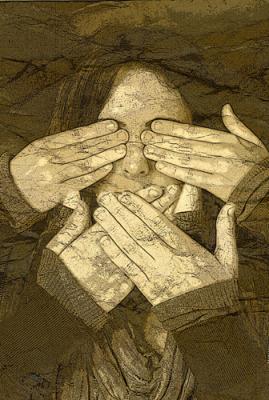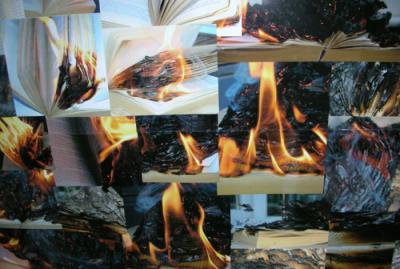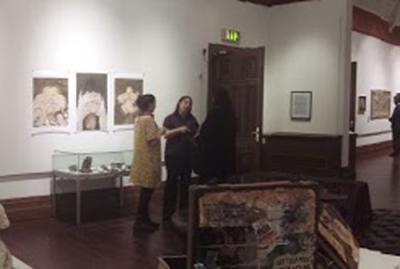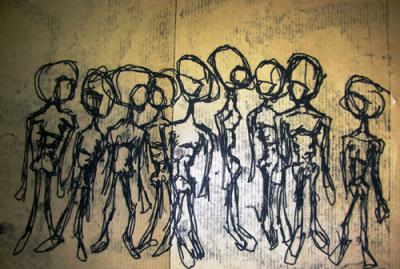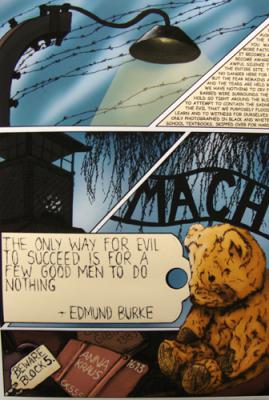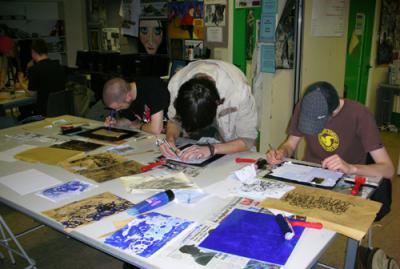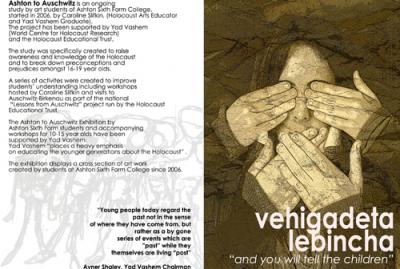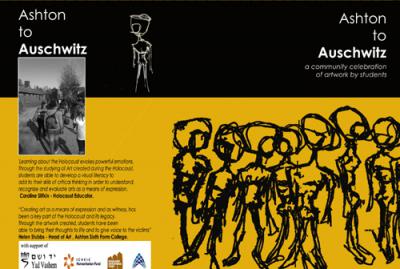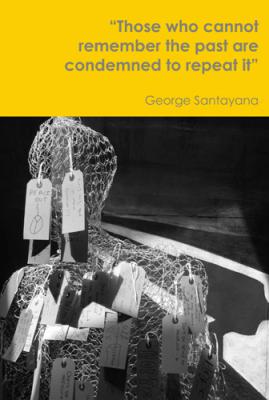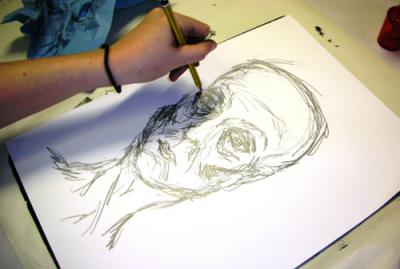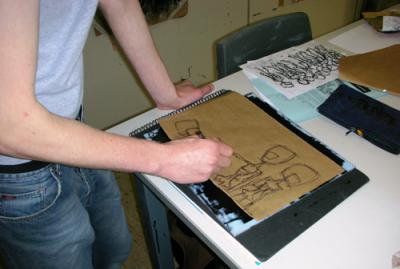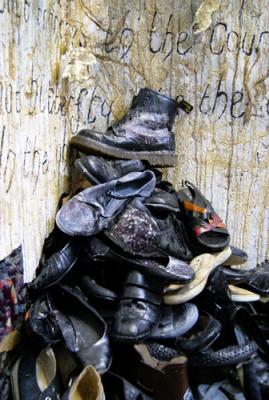Caroline Slifkin is a British educator who teaches pupils about the Holocaust through the medium of art. Starting in 2006, Slifkin began working with students aged 16-19 from the Ashton Sixth Form College. Since participating in a seminar at Yad Vashem in February 2007, she has continued working to raise awareness concerning the Holocaust and counter prejudice through the arts.
In one lesson plan, Slifkin eased her students into the subject of the Holocaust by introducing them to contemporaneous works of art. In addition to a technical description of the medium and artistic process, Slifkin led the students in an analysis of persecuted artists' response to the Holocaust through their art. "I open up the discussion by asking questions about the content of the artwork," said Slifkin. "How they used artistic expression to communicate their protest, as witness, despair and/or hope. We explore [art's] capacity to document diverse experiences."
In another workshop, Slifkin contrasted the Nazis' antisemitic propaganda posters with their placards extolling the superiority of the "master race." The students discussed the messages sent by both types of images and the efficacy of the Nazis' propaganda campaign. Perhaps most telling was one of the questions for discussion listed in the lesson plan: "Why do you think the Nazis chose to include mainly drawings and cartoons in their antisemitic propaganda rather than real images of Jewish people?"
In the framework of her lesson plans, she invites the students to discuss historical artwork and to create their own works in response. In 2014, the school displayed a sample of student artwork created in the Ashton to Auschwitz study, supported by Yad Vashem and the Holocaust Educational Trust (HET). Besides attending her workshops on the subject, many of Slifkin's students visited the Auschwitz-Birkenau State Memorial Museum as members of HET's "Lessons from Auschwitz" project.
"Through the use of visual images, students are able to develop a visual literacy to add to their skills of critical thinking in order to understand, recognize and evaluate arts as a means of expression," said Slifkin. "Learning about the Holocaust can evoke powerful emotions, and using the creative arts can help students to express their thoughts, ideas and responses in a good and creative way."

